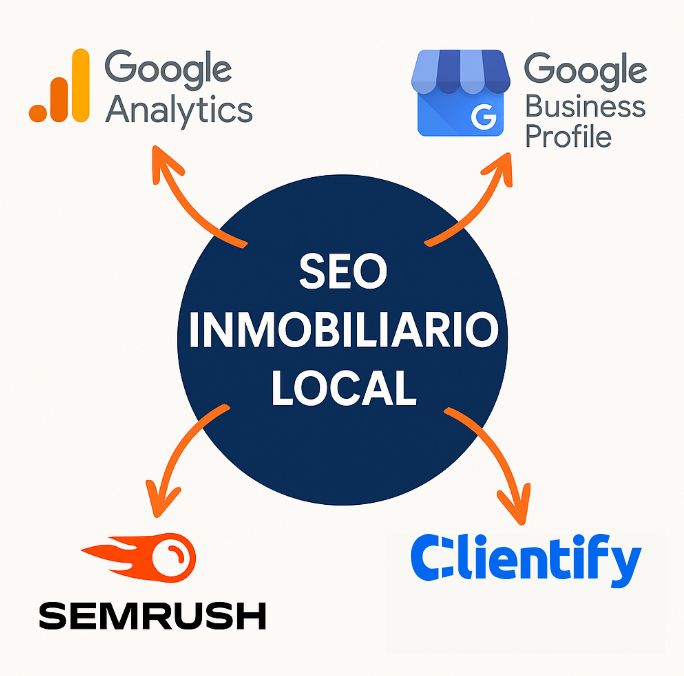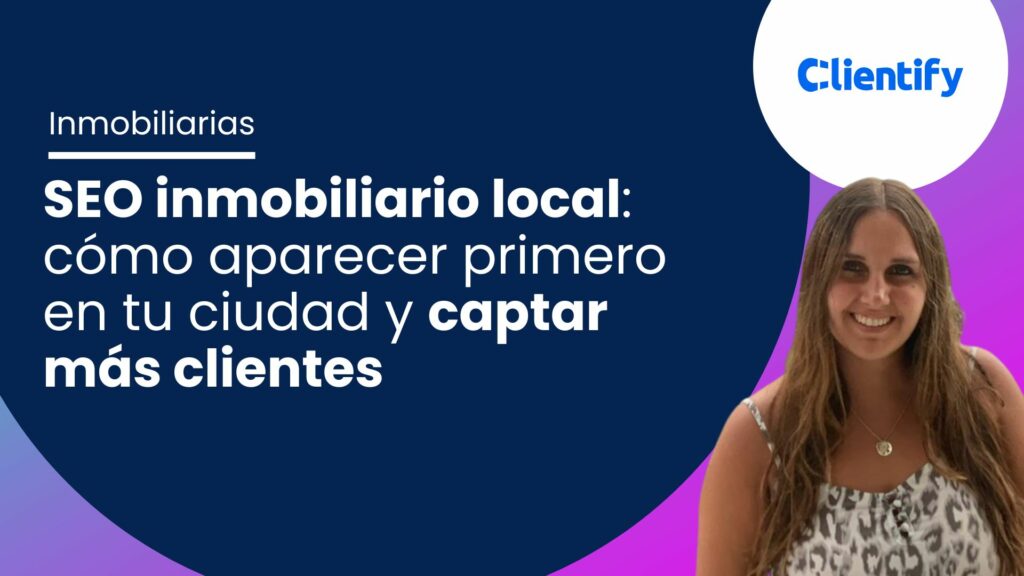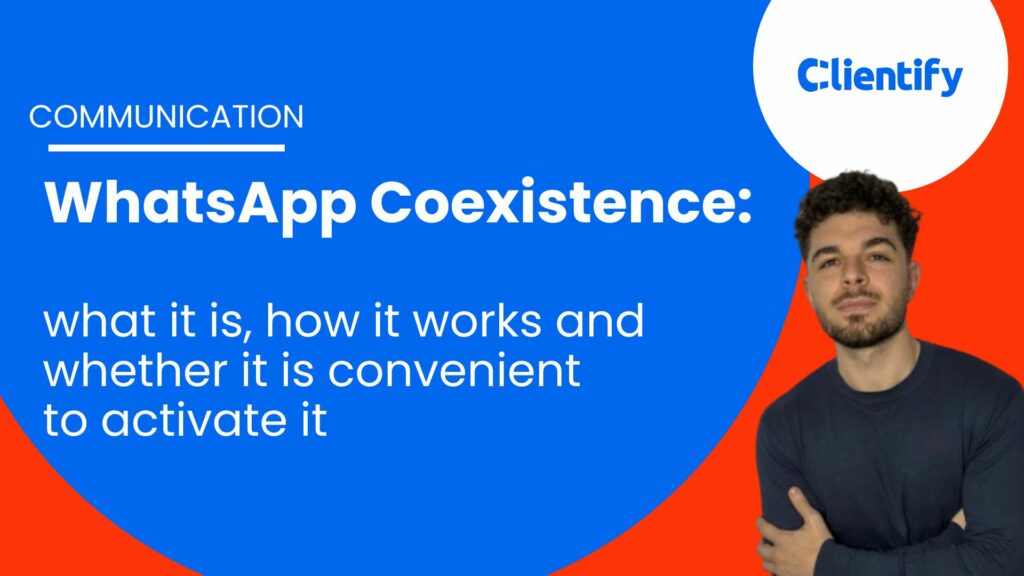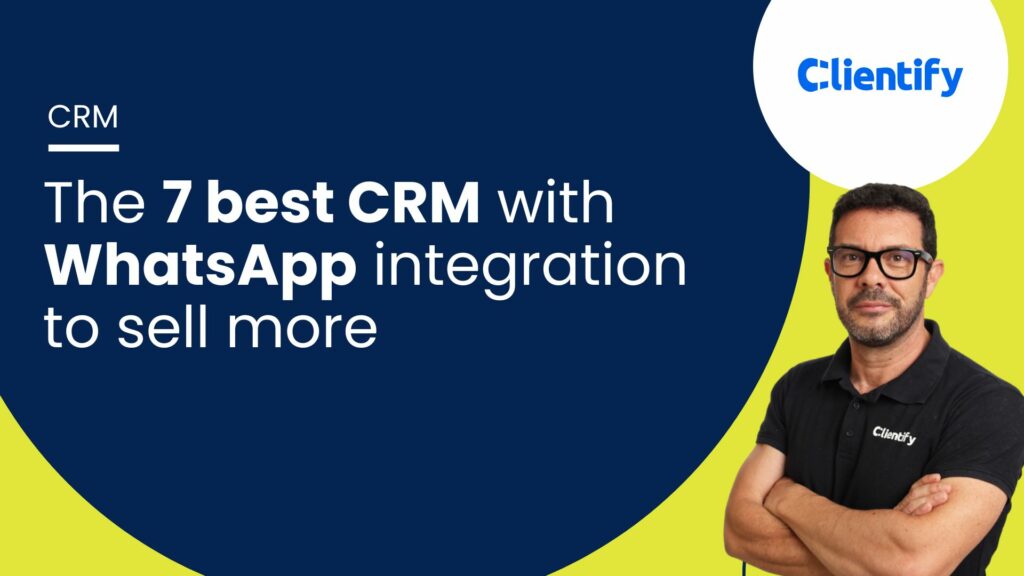Did you know that local real estate SEO can be the difference between your agency appearing on the first page of Google Maps or going completely unnoticed?
In a sector where visibility is the great generator of opportunities, positioning your real estate agency in local searches means capturing more leads, attracting quality web traffic and converting visits into real clients.
In fact, 46% of all Google searches have local intent, which means that nearly half of users are searching for businesses, products or services near them. And that’s where your agency needs to show up.
The good news is that you don’t need to invest heavily to stand out: optimizing your Google Business Profile, managing and boosting your reviews, appearing in local directories and choosing the right local keywords are key tactics you can easily implement to improve your business visibility and attract more customers.
Key ideas:
- Differences between general SEO and local SEO in real estate.
- How Google Maps and “near me” searches work.
- Main factors influencing local real estate positioning.
- Strategies to attract customers with local SEO.
- Tools (like Clientify) that help you convert leads into sales.
What is local real estate SEO?
Local real estate SEO is the set of strategies that are designed to optimize your online presence, which helps your agency appear in the first search results when someone searches for real estate properties or services in your area.
Unlike a general strategy, here everything revolves around location: from how you set up your profile on Google Maps, to the local keywords you use on your website. The goal is clear: to attract nearby customers who already intend to buy, sell or rent in your area.
With a well-thought-out strategy, your real estate agency can outperform the portals and capture quality leads without having to invest large sums of money in advertising.
Differences between general SEO and local SEO
General SEO seeks to position a website, with generic keywords such as “buy house” or “real estate in Spain”.
But instead, local real estate positioning is focused on specific geographic terms such as “apartment for sale in Torremolinos” or “real estate agency in Malaga center”.
The good thing about this local SEO is that it attracts much more qualified visits, getting data from people who are actually looking for properties in your area; which increases the likelihood of conversion.
How local SEO works on Google Maps and “near me” searches
Did you notice that when you type in Google “real estate near me”, a map appears with three highlighted results? That space, known as local pack, is very important for your business.
To appear there, Google takes into account different elements:
- Optimizing your Google Business Profile
- The quantity and quality of reviews
- The proximity of your office to the location of the user performing the search
Therefore, when your agency focuses consistently on these factors, it increases the chances that Google will show your real estate among those first results…and being in the top 3 of Google Maps, not only improves your visibility, but also increases the chances of attracting customers from your area.

Why is local SEO for real estate important?
The real estate industry is increasingly competitive and relying on portals alone can leave you at a disadvantage.
Applying SEO in real estate allows you to stand out in your own area, attract customers who are looking for exactly what you offer and convert that visibility into real business opportunities.
A good local real estate positioning helps you not to depend on massive platforms and helps you to build a recognized brand in your city or neighborhood.
Advantages over relying solely on real estate portals
Be careful, because real estate portals are useful to give visibility to your properties, but they also have several limitations. Your ad appears next to dozens of competitors, which makes it much more difficult to stand out and also, their prices tend to rise without a real guarantee of return.
Instead, with local SEO, your real estate agency generates its own web traffic and attracts direct leads without having to pay extra commissions. This gives you greater independence, strengthens your brand visibility in your area and helps you build a solid client base, without the need to rely on intermediaries.
That is why this technique is so important: it allows you to reduce costs, enhance your local real estate positioning and strengthen your direct relationship with your customers.
How does it impact customer acquisition in your area?
When someone searches for “buy apartment in Marbella” or “rent houses near me”, your digital presence makes the difference. Being in the first results means that the potential client contacts you before others.
On the other hand, SEO for real estate is key when it comes to optimizing local keywords and managing your reputation through positive reviews.
Look at what you can achieve when you implement a local SEO strategy:
- More calls and contact forms from Google Maps
- Increased qualified web traffic to your property website
- Customers coming directly to your agency without going through portals
- Increased conversion through trust generated by visible reviews
Key factors of local real estate SEO
The success of a local real estate SEO strategy does not depend on a single factor, but on a set of well-executed actions that make your real estate agency gain positions in local searches.
That’s why every detail counts… from technical optimization to online reputation management:
Optimization of Google Business Profile:
The Google Business Profile is your digital cover letter.
When a client searches Google Maps or adds “near me”, that listing is the first thing they see…so make sure all the information is complete: exact address, phone number, opening hours, updated photos of your properties and even weekly updates.
2. Strategies to get positive reviews:
Reviews are like word of mouth…but in a digital version.
So let me give you a tip: asking for reviews right after closing a deal increases up to 30% the chances that customers will leave a positive review.
And I assure you, an agency with a 4.8 star rating and dozens of positive comments, generates much more trust than any paid advertisement.
So, don’t wait for customers to give their opinion…remember to ask them for their review, always respond to every comment (even the negative ones) and use those reviews as social proof on your website.
The important thing is that this not only increases your visibility, but also helps you to improve your ranking in Google.
3. On-page SEO with geographic keywords:
The content of your website also plays a key role.
Including local keywords such as “apartments for rent in Benalmadena” or “apartments for sale in Malasaña” help Google to identify you as a relevant option in that area.
It is not a matter of repeating the keyword, but of integrating it in a natural way in titles, descriptions, texts of real estate listings and blog articles.
The clearer your relationship with a specific area, the higher your qualified web traffic will be.
4. Presence in directories and local portals:
Appearing in local directories and media increases your chances of being found by new customers. Being listed in sites such as chambers of commerce, neighborhood associations or digital newspapers in your city reinforces your authority.
In addition, these local links work as a trust indicator for Google, which improves your local real estate ranking.
3 practical strategies for real estate agencies
Once you are clear on the key factors, then you can move on to implementing your SEO strategy for real estate. Be careful, because this involves constant work on content, visibility and reputation.
And keep in mind that it is not enough just to appear on Google Maps: it is essential to take care of every detail of how potential customers find and perceive you.
1. How to choose local and neighborhood keywords
The main thing is to choose the right local keywords.
It is not the same to position “apartment for sale in Madrid” than “apartment for sale in Chamberí”. The more specific your keywords are, the more qualified web traffic you will attract.
Analyze how users search in your area, combine general terms with known neighborhood or street names, and don’t forget variations such as “rent” or “buy”. This way, your strategy will be much more effective in capturing leads with purchase intent.
2. Hyperlocal content creation (e.g. neighborhood guides).
Think about this: the content you create is what will set you apart.
If you generate articles or videos about life in a particular neighborhood, nearby schools, transportation or available services, you position yourself as a local expert.
This type of content not only improves your local real estate positioning, it also attracts people looking for real information about where to live.
And here, the important thing is that, by providing value before selling, your real estate agency gains trust and authority.
3. Local links: collaborations and media in the area.
Inbound links are a key factor for SEO, but in this case we focus on links with local relevance.
Collaborating with neighborhood associations, local media or even sponsoring neighborhood events can get you mentions and links on pages with a strong territorial connection .
These links are the ones that reinforce the local SEO strategy because they tell Google that you are an active part of the community.
Useful tools to boost your local real estate SEO
There is a very important factor that you have to take into account…a good local real estate SEO strategy does not stand alone, you need tools that help you measure, optimize and convert.
On the one hand, you have some Google resources such as Google Business Profile and Google Analytics, which allow you to know the performance of your listing and the web traffic that reaches your page.
There are also tools such as SEMrush or Ahrefs that are extremely useful when it comes to discovering new local keywords, analyzing the competition and evaluating the evolution of your search engine positioning.
But be careful, because getting traffic is not enough. To get the most out of your SEO strategy you have to implement a real estate CRM like Clientify.
This gives you the possibility to centralize all the contacts you receive thanks to your SEO strategy, follow up on them from the first click, automate reminders or personalized communications, among others.
This way, every opportunity has a better chance of becoming a real customer, maximizing your SEO ROI.

3 Common mistakes in local real estate SEO
The best local real estate positioning is not achieved overnight; you need a lot of perseverance and strategy to achieve it.
Likewise, there are agencies that make mistakes that reduce visibility and limit the ability to attract customers. These are some of the most common ones:
Do not optimize the Google listing:
An incomplete or outdated listing, or one without photos, detracts from your authority and can leave you out of the top 3 on Google Maps.
Ignore reviews or do not respond to them:
Feedback is crucial. Not asking for feedback or leaving unanswered comments conveys unprofessionalism.
Do not include location in titles and goals:
Forgetting to add the city or neighborhood in the titles and descriptions makes Google not identify you as a relevant option in your area.
Therefore, detecting and correcting these mistakes is key to boost your real estate SEO and make your agency stand out and gain presence in your area.
The 6 most frequently asked questions about local real estate SEO
1. What is local real estate SEO and why do I need it?
It is the optimization of your online presence so that your agency appears in searches related to your geographic area; and you need it because users who search “near me” or with neighborhood names have high purchase intent, which means more chances of closing sales.
2. How long does local SEO take to produce results?
It depends on your starting point, but with a good strategy you can see improvements in 3 to 6 months. Factors such as the optimization of your Google listing, the quality of the reviews and the creation of local content influence the speed of the results.
3. Is it better to invest in real estate portals or in local SEO?
The ideal is to combine both, but local real estate SEO gives you independence. With it, you build a constant source of web traffic and leads of your own, without depending on the price increases of the portals.
4. How do reviews affect my positioning?
Positive reviews are a key factor for Google to position you better on the map. In addition, clients trust agencies with high ratings and active responses more, which increases your chances of closing deals.
5. Do I need a CRM to take advantage of local SEO?
Yes, the real estate CRM is the tool that converts visits into clients. Platforms like Clientify allow you to manage SEO leads, automate follow-ups and not miss any opportunity.
6. What happens if I don’t work on my agency’s local SEO?
Simply put, your competitors who do will take away customers in your area. Not showing up in local searches is equivalent to not being in the shop window where buyers and landlords are actively looking.
You have already seen that local real estate SEO is one of the most important engines when it comes to differentiate yourself in your city, attract qualified clients and stop depending on massive portals .
If you optimize your Google listing, take care of your reviews, work with local keywords and manage your leads in a professional way, your real estate agency can become the reference in the area.
And remember: capturing traffic is only the first step, the important thing is to convert it into sales…that’s why a CRM like Clientify allows you to centralize all those contacts and automatically follow up on them so you don’t miss any opportunity.
Check out our free trial to see what features we have and use the ones you need to transform your online visibility into closed transactions.




